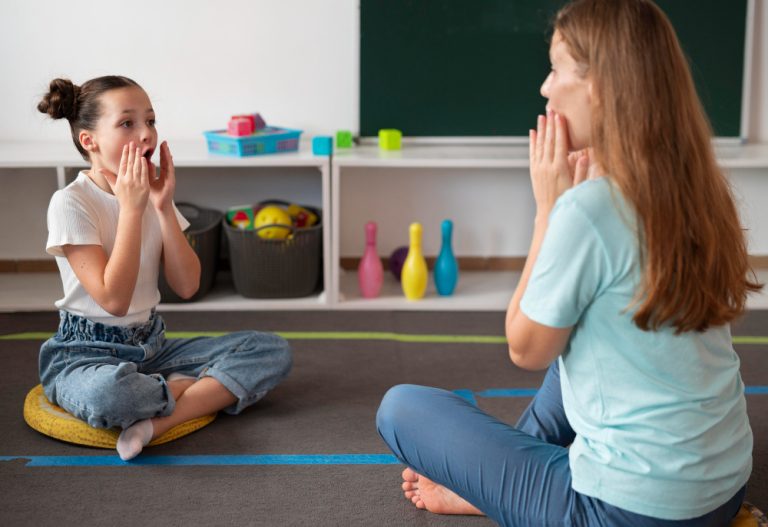Helping children build strong coping skills early in life is one of the best ways to protect their mental health and reduce the risk of turning to unhealthy habits in the future. Kids today face academic pressures, social challenges, peer expectations, and emotional struggles, all of which can feel overwhelming. When they are not taught how to handle these stresses in a constructive way, they may resort to negative coping mechanisms, such as aggression, withdrawal, or even experimenting with substances.
This is where teaching healthy coping skills becomes essential. Just like we teach children math, reading, or sports, emotional skills should also be nurtured so that kids know how to manage life’s difficulties with resilience and strength. Families, schools, and community programs—including supportive services like Nasha Mukti Kendra in Patran—all play a role in helping children build these skills.
Why Coping Skills Matter for Kids
Coping skills are the tools children use to manage stress, big emotions, and difficult situations. Unlike adults, kids are still developing their ability to regulate emotions, which makes them more vulnerable to frustration, fear, or anxiety. Without guidance, they may turn to unhealthy responses.
Healthy coping skills not only reduce stress but also:
-
Build emotional resilience
-
Improve problem-solving abilities
-
Encourage self-awareness
-
Foster positive relationships
-
Prevent risky behaviors, including substance use
By investing in teaching coping skills, we prepare kids to face challenges with confidence.
Types of Healthy Coping Skills for Kids
Coping skills can be broken down into several categories, and children benefit from learning a mix of them.
1. Emotional Coping Skills
These involve recognizing and expressing feelings in a safe way. Kids can be taught to name their emotions, talk about them, or use creative outlets like drawing or journaling.
2. Physical Coping Skills
Activities like running, dancing, yoga, or even simple breathing exercises help release stress and calm the body. These are particularly useful when kids feel restless or anxious.
3. Social Coping Skills
Talking to a parent, teacher, or trusted friend helps children feel supported. Teaching kids to ask for help is a valuable life skill.
4. Cognitive Coping Skills
These include problem-solving techniques, positive self-talk, and practicing gratitude. Kids can learn to reframe negative thoughts into more constructive ones.
5. Creative Coping Skills
Engaging in art, music, storytelling, or play allows children to express feelings and process experiences in a non-threatening way.
Practical Ways to Teach Coping Skills
1. Model Healthy Behavior
Children learn by observing adults. If parents or caregivers handle stress calmly, kids are more likely to imitate that behavior.
2. Practice Deep Breathing
Simple breathing exercises, such as “smell the flower, blow out the candle,” can help kids relax in stressful moments.
3. Create a Calm Corner
Designating a space at home or school where children can go to calm down can help them manage big emotions. This could include soft toys, coloring books, or calming music.
4. Encourage Open Communication
Ask open-ended questions like “How are you feeling today?” to help kids open up. Active listening makes them feel safe and heard.
5. Teach Problem-Solving
Guide kids through challenges by breaking them into smaller steps. This helps them see that problems are manageable.
6. Incorporate Fun Activities
Games, storytelling, and role-playing are effective ways to introduce coping skills without making the process feel like a lesson.
Role of Schools and Communities
Schools play a big part in teaching coping skills. Teachers can integrate mindfulness activities, group discussions, and emotional learning programs into the curriculum. Extracurricular activities such as sports, drama, and music also give children healthy outlets to cope with stress.
Community centers and organizations also support children by providing safe spaces, guidance, and structured programs. Centers like Nasha Mukti Kendra in Patran contribute by raising awareness about the importance of prevention and by supporting families who may be struggling with addiction-related issues. These initiatives highlight the value of teaching kids healthier alternatives before problems escalate.
The Connection Between Coping Skills and Addiction Prevention
Research shows that children who lack healthy coping skills are more likely to engage in risky behaviors, including substance use, during adolescence. Teaching kids how to regulate their emotions reduces the chance of them experimenting with alcohol, drugs, or vaping as a way of escaping stress.
By equipping children with coping skills early on, parents and educators can create a protective shield that lowers the likelihood of addiction later in life.
Tips for Parents
-
Be patient—learning coping skills is a process.
-
Praise positive behavior to reinforce healthy strategies.
-
Keep routines consistent to provide stability.
-
Spend quality time with your child to build trust.
-
Don’t hesitate to seek professional help if needed.
Conclusion
Teaching kids about healthy coping skills is one of the most important investments in their future. It strengthens their mental well-being, improves relationships, and reduces the risk of substance use or other harmful behaviors. By working together, families, schools, and community programs can ensure children grow up with the resilience and confidence to face life’s challenges.
For families seeking guidance or support, Nasha Mukti Kendra in Patran provides a compassionate environment that not only addresses addiction but also emphasizes prevention and education for a healthier tomorrow.


